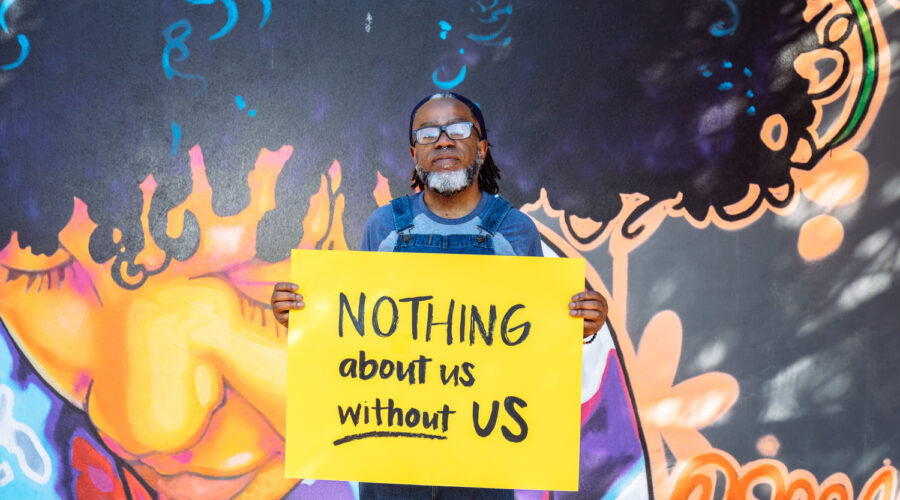Yesterday, a small group of Members of Parliament got together to debate the rights and wrongs of legalising assisted suicide. The debate did not have the power to change the law in England and Wales, however it could be one element of laying the groundwork for introducing a vote on a change in law in the future.
Assisted suicide is an issue that will always engender strong feelings. Many people fear the prospect of a prolonged, painful death and feel the need to change the law to prevent that fear coming true. Many others feel that life is given by God, and it should be up to God to decide when it ends.
However, there is a “side” in this complex argument that is rarely well represented, and that is the disabled people who oppose assisted suicide but are not “pro-life” in the sense that Catholics or evangelical Christians might be.
These disabled people can happily go from campaigning for abortion rights one day to opposing assisted suicide on the next, with no contradiction at all in that shift.
That’s because the disability rights movement’s opposition to assisted suicide is not about whether or not we have a right to override God’s plans for our lives, it’s that we live in a society with such a vast gulf between the way disabled and non-disabled people are treated that there is simply no way to implement a legalisation of assisted suicide without baking bias and discrimination directly into the law.
OUR LIVES = WORTH LIVING
Today, DAN folk are joining Not Dead Yet UK folk to protest for our right to ASSISTED LIVING and dignity IN LIFE.
We can't trust this, or the next govt to preserve our still-shrinking right to support while they can send us to death clinics. #NOtoAS
— D.A.N. the disabled people's Direct Action Network (@DAN_Disabled) April 29, 2024
When a non-disabled person feels suicidal, they should be offered support and help to live. To build and create a life with the support they need to want to live again.
Disabled people are saying they want this same treatment.
Instead, when assisted suicide is legal, then a suicidal disabled person who is considered to be terminally ill (which is a far more amorphous concept than many people realise) or suffering to a particular degree, they could be greeted with, “Sure, great idea! Here are the drugs” rather than “How can I help you to want to live?”
The risk of an abuse of power is immense.
When you are living in a world that is designed to exclude you, and that is full of people who have been trained by the tabloids to hate you, it is not uncommon to despair. When you cannot afford to live because the government has smashed up the benefits system and you can’t find an accessible place to live, it is pretty normal to want to give up. When doctors won’t treat your pain because they treat you like a drug seeker, of course you feel like your future is bleak.
The answer to these problems is to help the person. Fund the systems that support them, believe their pain, behave like the disabled person has exactly the same humanity as the non-disabled one.
Yet in countries where assisted suicide has been legalised, there are alarming signs that warn campaigners of the real dangers of a slippery slope.
In the Netherlands, 5.4% of the country’s total deaths last year were by assisted suicide, with the number to end severe psychological suffering up by 20%. In Canada, a man applied for MAiD, the euphemistic name for Medical Assistance in Dying, because he feared being evicted; when strangers gave him money through crowdfunding, he reconsidered. In Belgium, a 23-year-old woman chose to use assisted suicide to die because of the trauma-induced depression she experienced after she witnessed a terrorist attack. In Oregon, almost half (46%) of the people who chose to die by assisted suicide in 2022 cited “feeling like a burden” as a reason to choose that method.
People aren't burdens, nor should they be made to feel like a burden by the failure of the systems around them
— Not Dead Yet UK (@TheNotDeadYetUK) April 29, 2024
Oregon is often referenced as an example of responsible, ethical and controlled assisted suicide laws, but as well as the horrifying “burden” statistic, the most-cited reasons include an increasing inability to participate in life activities (89%), loss of autonomy (86%), and loss of dignity (62%).
What if, instead of helping people to die, we enable them to participate more in life activities, and we ensure they have autonomy and dignity. Would that help them to live instead?
Legalising assisted suicide enshrines into law the ability for us, as a society, to opt out of improving people’s lives. Instead, it makes it easier, or even encourages, them to die quietly instead.
Image: Disabled And Here

